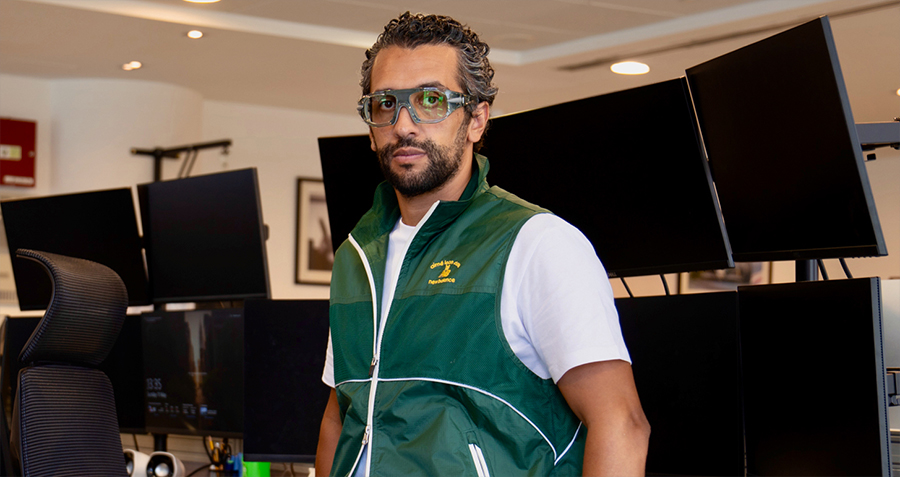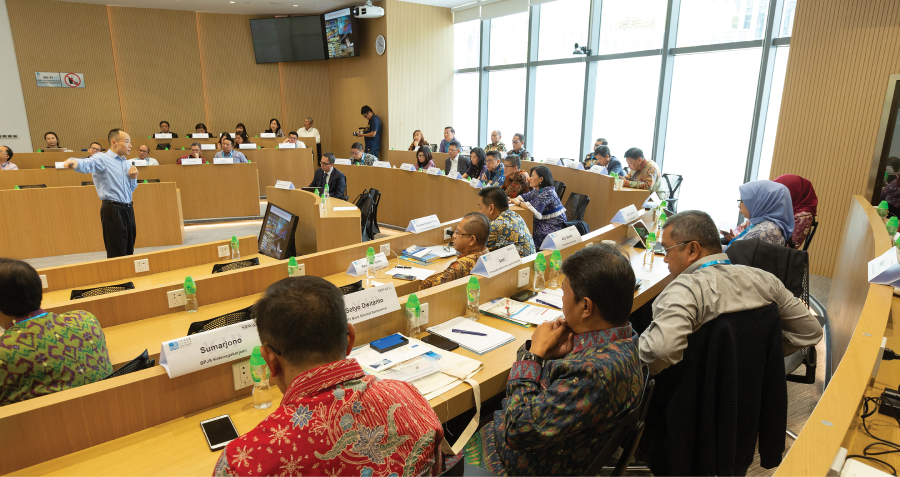To reach ambitious climate targets by mid-century radical innovation will be critical and it won’t happen unless we deploy unprecedented levels of collaboration
The enormity of the challenge to reach net-zero emissions by the middle of this century, required to limit global warming to 1.5°C, cannot be overstated. It requires much more than traditional, gradual innovation – we need to rethink and reinvent business models, consumption behaviors, production systems and entire value chains. This will only be possible if individuals, governments and businesses collaborate – because the challenges are so large and so interconnected that our only hope of solving them is by doing so together.
Much like climate itself, achieving net zero represents an incredibly complex system where every action and event is connected to a wide range of others. This means that no company, or even industry, can decarbonize by itself. Innovation is required across and between economic actors and sectors.

For example, a major oil company transitioning to renewable energy is of course a positive step, but it would only be a small part of making the transportation system fully net zero. That requires cooperation across a range of industries from minerals and steel, power and utilities, automotive, oil and petrochemicals, aggregates and construction and more. It needs the right policies to stimulate all those industries to make the change. And it needs employees with the tools and skills to execute it and consumers with the willingness to change their mobility habits.
Or if we think about carbon capture use and storage, whether engineered or from nature-based solutions, the implications across industries are huge. To adopt nature-based solutions at the necessary scale to achieve negative emissions by the end of the century we will need to reduce the amount of arable land worldwide to give it over to reforestation. That means we will need much more innovation in terms of urban, ‘vertical’ farming and a major reorganization of both cities and food supply chains – a massive change for the agricultural, transportation and government sectors.
An important starting point for the solution is thinking of it in terms of virtuous circles. Citizens need to change their consumption preferences as well as elect politicians who will drive net-zero agendas. Governments must provide businesses, investors and consumers the policies and incentives they need to make the necessary changes to their lifestyles and business models. At the same time, businesses must advocate for net-zero regulations, help to educate citizens about cleaner products and services and transform their businesses to provide them.
How can businesses start putting this into practice today? There are four key elements.
The first is sharing, meaning the non-competitive, or at least pre-competitive, transparent sharing of knowledge, information, and learning that can unlock industry-wide solutions toward emissions reductions. Such exchanges with industry-relevant local or regional partners can accelerate the development and uptake of the kind of changes needed at scale. Germany’s Fraunhofer-Gesellschaft and the UK Government’s “Catapults” are good examples of public-private partnerships for shared industrial IP development and commercializing applied research. Larger, global examples of this, focused on key net-zero technologies, could make a big difference to accelerating global industrial innovation.
The second is creating bilateral, multilateral or cross-value-chain partnerships to deliver practical solutions. Initiatives in this area focus on establishing partnerships within and across industries and working with public-private stakeholders to bring to market solutions that benefit everyone. Walmart launched Project Gigaton in 2017 with the aim of avoiding one billion tons of greenhouse gasses across its supply chain – scope 3 emissions – by 2030. It involves more than 2,300 of retailer’s largest suppliers globally, each of which has created targets and measures progress that it then reports to Walmart. As well as its suppliers, Walmart involved several NGOs in the plan, including the Environmental Defense Fund. In the project’s first two years it saved 230 million tons of emissions cumulatively. Industrial clusters, which comprise co-located industrial companies from one or more sectors, are also great examples of opportunities to scale low-carbon solutions by sharing risk and resources.
The third element is investment – securing the financing to drive innovation at speed and scale. Initiatives in this area aim to fuel innovation (and, ultimately, disruptive solutions) in the market. The investments can be in innovative start-ups, product- and business-model development, thought leadership, R&D, and non-commercial third parties such as NGOs or academia. FlyZero is an initiative backed by the UK government that aims to realize zero-carbon emission commercial aviation by 2030. It brings together more than 100 experts from a wide range of fields including design, manufacturing, operations, economics, supply chains and the environment, to tackle the entire scope of the challenge. In 2022 the initiative plans to unveil three concept aircraft that will address the challenges of zero-emission aviation.
The fourth is around comprehensive, well-coordinated policy packages and enabling regulatory environments. Initiatives in this area provide a broad series of positive and negative incentives spanning regulations, grants, standards, taxes and subsidies that work in concert to steer a shift towards a lower-emissions economy. The EU Green Deal, a major set of policies developed to deliver the EU’s sustainability goals, is a good example. It encompasses a wide range of issues and initiatives from clean air to healthy food and from public transport to clean energy. We will need many such Green Deals, coordinated with each other to avoid tilted playing fields or trade disruptions.
To halve emissions by 2030 and move to net zero over the following 20 years will be the most complex undertaking the world has ever seen. The task is daunting, but there are good reasons to believe we can achieve this goal. Innovation will be key, but only by finding new ways of collaborating and cooperating across actors and sectors will we be able to respond to this challenge at the pace and scale required.
By Mauricio Bermudez Neubauer
Dr. Mauricio Bermudez Neubauer is a Managing Director in Accenture’s Sustainability Services, where he is the global lead for Carbon Strategy and Intelligence.




















